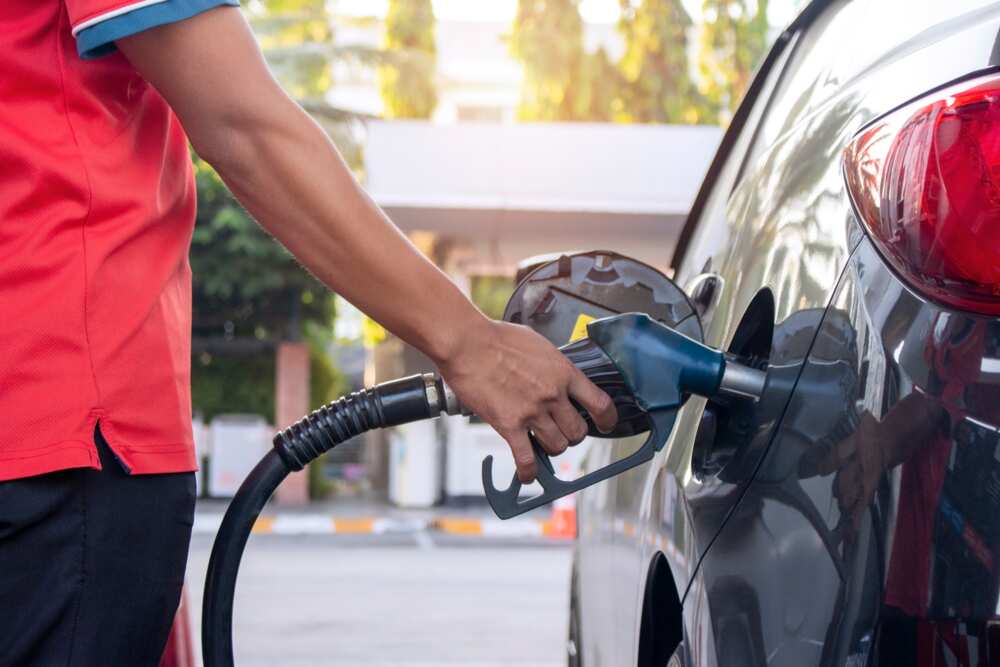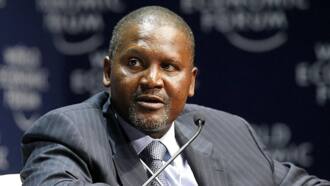Fuel scarcity: What Nigerians Should Expect in 2023 if Subsidy is Removed
- Nigerians have been asked to brace for tougher times next year when the petro subsidy is removed
- Currently, a litre of petrol is sold for N170 due to subsisting subsidy by the Nigerian government
- The Department of Petroleum Resources (DPR) had hinted that a litre of petrol may sell for as high as N1000 in 2023
- According to a recent report, removing fuel subsidies next may throw the country into an energy crisis as the Nigerian government hands off subsidizing fuel
PAY ATTENTION: Click “See First” under the “Following” tab to see Legit.ng News on your Facebook News Feed!
Currently, fuel is sold for N175 per litre because the federal government is paying billions of naira monthly to make it affordable, a Business Insider report says.
This means consumers are paying more to buy a litre of fuel for their cars or to power their generator sets in cases of electricity outages.

Source: Getty Images
Nigeria imports refined petrol
The government pays more than 50 percent of the true cost of petrol consumed by Nigerians at petrol stations.
PAY ATTENTION: Subscribe to Digital Talk newsletter to receive must-know business stories and succeed BIG!
As an oil-producing country, Nigeria has enough oil but lacks functional refineries to refine the crude it produces.
The country exports the crude oil to foreign refineries and imports it back as refined petroleum products for domestic consumption.
The cost of refining a litre of petrol, including logistics, is put at N4oo, known as the landing cost.
Nigeria introduced fuel subsidies in the 70s in response to the 1973 global oil problem when OPEC members embargoed many countries, including the US, the US, and Canada, for supporting Israel during the Ramadan war.
The ban led to a global rise in oil prices. The Nigerian government introduced subsidies to curtail local costs to address the crisis.
In 1977, fuel subsidies became constitutional by decree.
Fuel landing costs
In August 2022, Zainab Ahmed, the Minister of Finance, Budget and National Planning, said the landing cost of petrol was about N448 per litre.
According to reports, Nigeria consumes about 68 million litres of petrol daily, meaning an average of 19 billion litres of petrol is consumed in Nigeria every month.
Nigeria spends about N250 to N300 billion monthly to subsidize petrol.
The Department of Petroleum Resources (DPR) said early this year that when the petrol subsidy is removed, the pump price of petrol may rise to 1000 per litre.
NNPC reveals how much petrol will cost when subsidy is removed next year
Legit.ng reported that according to the NNPC, the average daily importation of fuel between January and August 2022 was 68 million litres which it pays N297 per litre to subsidise.
A statement by the company said the total volume of petrol imported into Nigeria was 16.46 billion litres since January 2022 and translated to a supply of 68 million, a BusinessDay report said.
The company stated that it imported about 22.35 billion litres in 2021, reaching 61 million litres per day.
Source: Legit.ng


